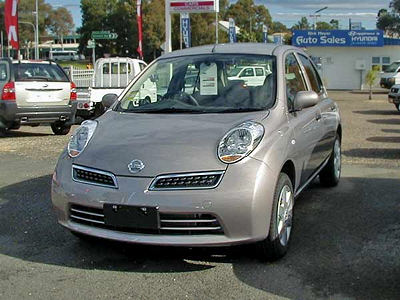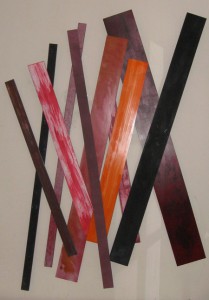Posted by Steve Durbin on September 29th, 2008

Most of my photography in Newfoundland was done within a few meters of the sea. I rediscovered there some of the rock and water themes I’ve pursued closer to home, though with important differences. For example, rocks are more likely shaped by the surf, and are as often wet as dry. New waterfalls are born every time a wave rides over a rock in the tidal zone. But the most interesting difference was the presence of living subjects at the rock/water interface, and of these, my favorite was seaweed.
more… »
Filed in across the arts,photography
- Tags: chance, kelp, motion, photography
- Comments closed
Posted by Birgit Zipser on September 27th, 2008
Mist rolls over what had been brightness,

more… »
Filed in photography
- Tags: waves
- Comments closed
Posted by Jay on September 25th, 2008
I saw a dirty rear window adorned with the commonplace admonition: “WASH ME”. The glass had a general roundedness reminiscent of an old television screen. Such a screen, if dusty, would be adorned with “WATCH ME”.
I dislike this kind of thinking because it demands action. In this case not so bad as I have discovered the joys of plastic and could imagine something in that medium.
Finding an old television or crt and smearing it ala Robert Rauschenberg could maybe work, but the product would be an orphan without a context. Going Oldenburg might be better. Many of his signature works have involved a process of simplification that can catch the essential syntax of a design while allowing it to serve as a support for superimposed meanings. In this case I needed to find a way to say “TV” in an elementary way, allowing the message to be comfortably introduced.
My first impulse has been to create the outline of a tv screen in smoky lucite and to bend it into an affixed curvature, set against a background plaque, appropriately shaped and painted. Fortunately, the television screen is a deeply ingrained shape, and announces itself with no outside aid. The ‘cabinet’ might be a simple rectangle showing a little more at the bottom than the top, implying the presence of knobs and buttons. Another usable is the allowance given by the continuing depiction of older technology, like steam locomotives, in the media. Coors drives its cold refreshment choo-choo through town on steam, not diesel electric.
more… »
Filed in Uncategorized
- Comments closed
Posted by Steve Durbin on September 24th, 2008

We’ve speculated here, there and elsewhere about the subliminal power of mental structures, such as the face-recognizing fusiform gyrus, to influence our perception of art and other visual experiences. So I was interested to see an article on the topic in the Toronto Globe and Mail (original story from Agence France-Presse), which was left at the hotel room on my last day in Newfoundland. It reports a study by Karl Grammer of the University of Vienna on how we react to cars on the basis of their “facial” characteristics.
more… »
Filed in perception
- Comments closed
Posted by Birgit Zipser on September 18th, 2008
In the early morning, a fine mist often lies over water and land.
My friend and neighbor John Johnson captured fishermen on a Michigan Lake.

more… »
Filed in photography
- Comments closed
Posted by Birgit Zipser on September 11th, 2008
Lines, patterns and lighting prompted photographing and photoshopping this image.
more… »
Filed in photography
- Comments closed
Posted by Jay on September 9th, 2008
A number of my projects appear to have few if any parallels or antecedents – or so it seems. I’ve been watching for other manifestations of the chain concept, for example, without success. This may satisfy a need to be original , but it leaves me wondering about the quality and quantity of my research. My situation may be out in left field, but I’m sure that there are many who, laboring with their notions and inspirations, are curious about where they stand.
So one’s first thought is the internet. Set up a site where an artist can put up a clear image of his or her work and ask: Of what or who does this remind you? Criticism would not be solicited, only placement in a larger context.

Here’s another example of one of my x-shape compositions. There has got to be a million of them out there, all unknown to me. Do I really want to find out about someone else doing the same or similar thing? No. Do I need to find out? Definitely yes.
You will have thoughts about this. I would not be surprised to find that many such sites already exist. But, indeed, is this worth doing?
Filed in Uncategorized
- Comments closed





